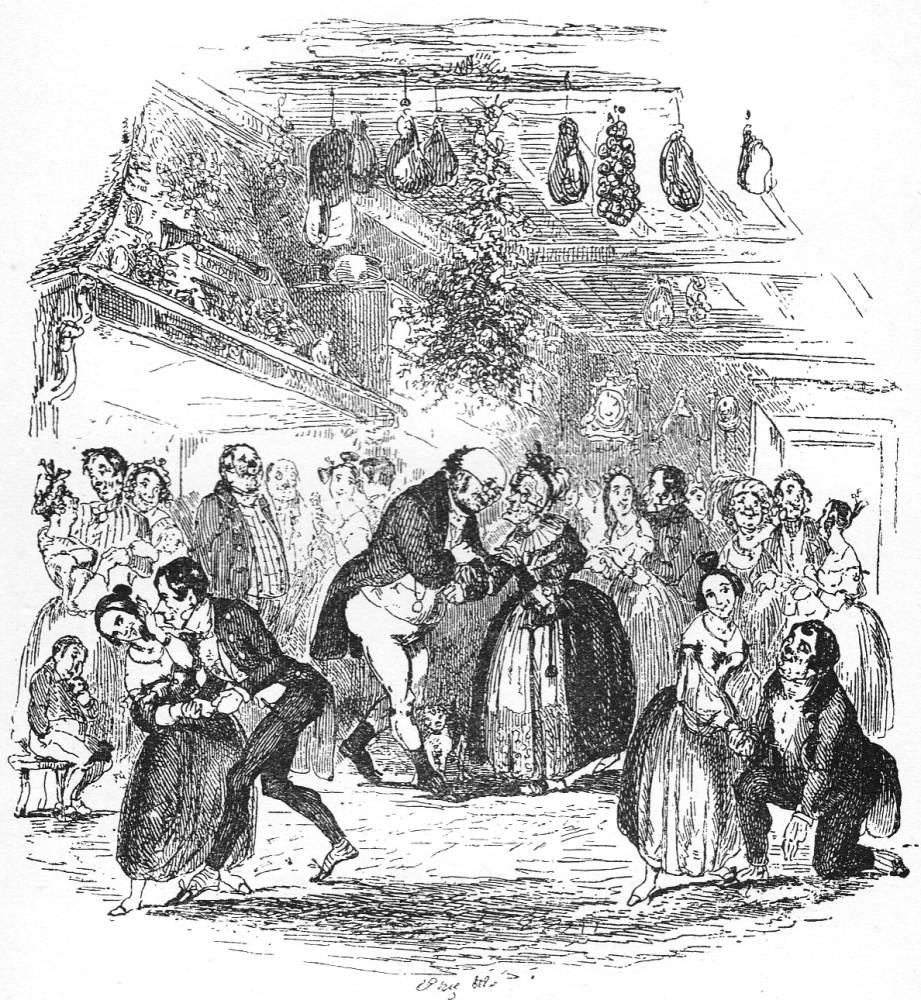Dickens Day, now in its 28th year, is looking at how conviviality features in Dickens’s life and work.
Dickens’s works are famously convivial, depicting sociability in myriad forms: from the famously boozy Pickwick Papers, through the Crachits’ sentimental festive celebrations in A Christmas Carol, to the miserable family gatherings of Martin Chuzzlewit and Great Expectations, and the skewering of upper-class social pretentions and false conviviality in Bleak House, Little Dorrit and Our Mutual Friend. Dickens’s works were famous from the outset for their emphasis on humour, celebrations, family gatherings, theatrics, eating and drinking, and good cheer. Dickens was also himself famously convivial and sociable, accruing a wide circle of friends across the social spectrum and notorious for his love of parties, jamborees, practical jokes, theatrics, and other forms of high-spirited sociability. Yet Dickens was also a chronicler of the flipside of bonhomie, exploring loneliness, isolation, poverty and want, social aping and pretension, and the feelings of inadequacy, anxiety and exclusion that may fuel conviviality.
How do conviviality, sociality, and humour operate in Dickens’s work, and how and why do such depictions continue to amuse and entertain? What critical, biographical and psychological frameworks can we apply to analyse Dickensian good feeling? These are some of the questions the day seeks to address.
Venue: Institute of English Studies (IES), School of Advanced Study, University of London.
Senate House, Malet Street, London, WC1E 7H
Date and time: Saturday 11 October 2014
Programme
| 09:00 | REGISTRATION | |
| 09:45 | OPENING REMARKS
Bethan Carney, Holly Furneaux and Ben Winyard (Dickens Day organisers) |
|
| 10:00 | PLENARY PANEL | |
| Chair: TBC | ||
| Nicola Bradbury (University of Reading);”Doing the honours of the feast”: Reporting the Revels in Dickens
Pete Orford (University of Buckingham):Social Awkwardness and Empty Humour in Edwin Drood Wendy Parkins (University of Kent): Ethics and conviviality in Bleak House (or, the precarious life of the Jellyby children) |
||
| 11:15 | READINGS
Readings organised by Tony Williams (University of Buckingham and the Dickens Fellowship) and given by invited readers. |
|
| 11:30 | TEA/COFFEE | |
| 12:00 | PARALLEL PANELS | |
| Panel A – Laughter and its Others | ||
| Rick Allen (Chair, Cambridge branch of the Dickens Fellowship): The Convivial Feast and its Antitype: Dickensian Myth and Reality | ||
| Harriet Briggs (Newcastle University): “The Right Sort of Merriment?” Laughing with Dickens | ||
| Clive Johnson (University of Kent): “It Comes of Not Wasting Language as Some Men Do”: Comic Profligacy in Dombey and Son | ||
| Panel B – Holidays, Excursions and Festivities | ||
| Chair: TBC | ||
| Jane Darcy (University College London): Dickens and Conviviality on the Isle of Wight | ||
| Ushashi Dasgupta: “Our Gregarious Work”: The Extra Christmas Number of Household Words and All the Year Round | ||
| Matthew Ingleby (Queen Mary, University of London): “The Bloomsbury Christening” and the Geographies of Domestic Social Entertainment | ||
| 13:15 | Lunch (own arrangements) | |
| 14:30 | READINGS | |
| 14:45 | PARALLEL PANELS | |
| Panel A – ‘Chops and Tomata Sauce’: Dickensian Dining | ||
| Chair: TBC | ||
| Charlotte Boyce (University of Portsmouth): Picnicking with Mr Pickwick: Outdoor Eating and the Limits of Conviviality | ||
| Joanne Ella Parsons (Bath Spa University): Eating his Way into Society: Food, Manliness and Class in David Copperfield | ||
| Hadas Elber-Aviram (University College London): “A Jolly Round of Beef”: Enormous Meals, Child Starvation and Gothic Consumption in Dickensian Fiction | ||
| Panel B – (Anti-)Convivial Legacies | ||
| Chair: TBC | ||
| Katie Bell (University of Leicester): Dawn of the Dickensian Dead: How the Legacy of Dickens’s Ghostly Figures Perseveres | ||
| Andrew Schmidt (University of Washington): “There is Cruelty Here”: Dickens and the Tableau of Past Conviviality in The Invisible Woman | ||
| Melissa Symanczyk (‘Dear Mr Dickens: My Year with Charlie’ – www.dearmrdickens.com): Late to the Party: The Convivial Journey of a Dickens Newbie | ||
| 16:00 | Tea/Coffee | |
| 16:30 | PLENARY
Chair: Paul Schlicke Malcolm Andrews (University of Kent): Laughter and Conviviality |
|
| 17:15 | CLOSE |

